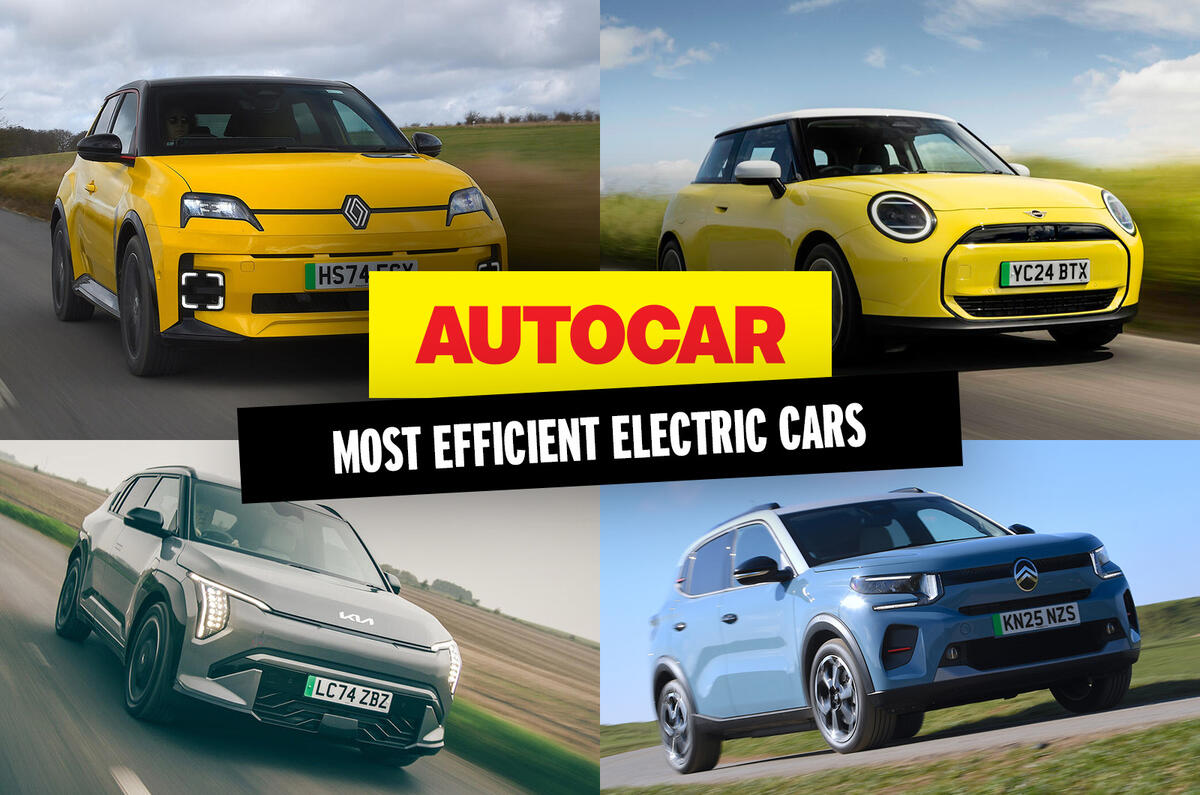For many electric car buyers, choosing which one to buy hinges on two key factors: how much range the car has, and how efficient it is.
While many electric cars have impressive claimed range figures, managing to achieve them is another story.
Electric car efficiency is measured by calculating its miles per kilowatt hour used, shortened to mpkWh. For example, a Volkswagen ID 3 with a 77kWh battery would require an efficiency of 4.5mpkWh to achieve its officially rated 347 miles of range.
Efficiency is impacted by several variables, including battery size, driving style and outside temperature. Another important factor is weight.
The Audi Q8 E-tron, for example, is powered by a 106kWh battery, but weighs a staggering 2585kg, meaning it can deliver only around 2.9mpkWh.
Larger, SUV-style electric cars are also usually impacted more by drag, which reduces their range compared with sleeker, more aerodynamic sports cars and hatchbacks.
Then there’s the weather. Warmer temperatures mean a battery’s chemical reactions can occur faster and produce a higher range, whereas colder weather requires more energy, reducing range.
Other aspects dictated by the driver, such as how fast you drive and the use of climate control or air conditioning, also affect range. A car will often be able to travel further on a single charge in the city compared with on the motorway, as more power is required to sustain higher speeds and handle the increase in drag.
Now you know how an electric car’s efficiency is impacted - but just how efficient are electric cars in the real world, and which are the most efficient electric cars on sale today? Our list below details the best EVs to squeeze the most mileage out of your battery.
Claimed efficiency: 5.1mpkWh
Autocar’s test efficiency: 3.7mpkWh
The Vauxhall Corsa-e gained a larger 52kWh battery in 2024 with a boosted 251 miles of range. Vauxhall doesn’t explicitly quote its miles per kWh figures, but using that official 251 miles range figure and the size of the battery produces a figure of 5.1mpkWh.
Our test gave 3.7mpkWh, which calculates to around 185 miles of range. Similar to the electric Fiat 500, the Corsa-e weighs around 1455kg, which helps the hatchback achieve its impressive efficiency score.
Keep an eye out, though, as Vauxhall is set to launch a revised version of the Corsa-e with battery updates that boost its range to 246 miles. In theory, that takes the Corsa-e’s efficiency up to around 4.8mpkWh.
Read our Vauxhall Corsa Electric review






Join the debate
Add your comment
My 5 seater "family-sized" 2019 Hyundai Ioniq 28kWh averaged 5m/kWh in the winter and 6m/kWh+ in the summer - average over 22k miles was 5.6kWh. Not an SUV. 1450kg kerb weight & aerodynamic. We seem to be going backwards, with 3m/kWh becoming the norm.
(Interesting fact: my EV will do 105 mph in drive or reverse! - not that I've tried it...)
They've got cash coming in from the manufacturers, cash from the nudge unit.
This rag stopped being trustworthy years ago. Most of what they publish now is just re-hashed press releases, and 2 hour drives at the launch printed as a 'review'.
I don't trust any of the figure they publish now - they quote the official tests and manufacturer claims with a straight face, including numbers like 130mpg for a 2.5 ton Porsche Cayenne.